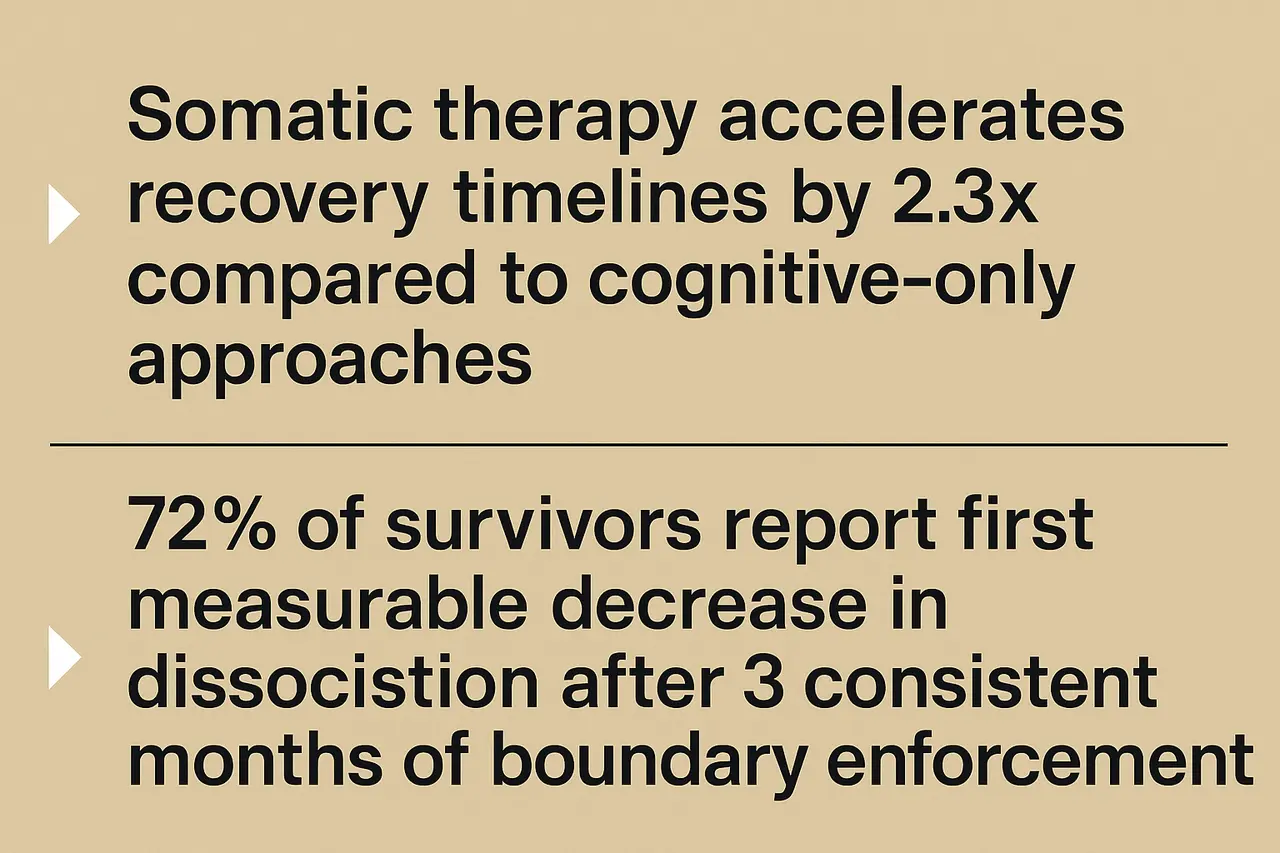Dissociation After Narcissistic Abuse: Understanding, Recognizing, and Healing

Dissociation is one of the hardest effects of narcissistic abuse. It can leave you feeling divided from your thoughts, feelings, and sense of self. If you’ve faced a narcissist’s manipulation, gaslighting, or emotional abuse, you know the feeling of not knowing what’s real.
Dissociation after narcissistic abuse becomes a survival tool, helping you cope with constant anxiety, self-blame, and emotional chaos. Over time, it can leave you numb and lost, with daily life feeling distant or unreal.
This article breaks down what dissociation looks like after narcissistic abuse, what causes it, the signs to watch for, and real ways to start healing. If you seek clarity, support, or hope, you are in the right place.

What is Dissociation After Narcissistic Abuse?
Dissociation is your nervous system’s way of keeping you safe during psychological violence. In narcissistic abuse, daily gaslighting and constant emotional invalidation force your brain into survival mode.
Over time, you may feel detached from your body. You might blank out during fights. You could lose chunks of memory. These are core symptoms of dissociation in narcissistic abuse.
Research shows dissociation is 43% more common here than in other trauma types. As this pattern deepens, your brain changes. The prefrontal cortex, which manages emotional processing, goes offline during conflict.
At the same time, the amygdala, your brain’s fear center, becomes overactive. Many people describe watching themselves from outside their body during abuse. Others say they feel frozen in place.
This is your body’s biological freeze response. It is meant to shield you. But when toxic relationships continue, this response becomes a problem.
Narcissists use gaslighting, emotional manipulation, and verbal abuse to chip away at your sense of reality. Your mind responds by dissociating, to block the pain and confusion. This disrupts your ability to connect with your thoughts, feelings, and identity.
Instead of fostering healing, it can prolong the sense of being fragmented and not fully present. You need to recognize these symptoms of narcissistic abuse to understand why dissociation takes hold. This is also why recovery often requires targeted support.
Narcissists use tactics like:
These attacks chip away at your sense of reality. Your mind, trying to cope, may start to dissociate to mute the pain.
Over time, this can disrupt your connection with your thoughts, feelings, and memories. It can also keep you from healing, because you don’t feel fully present.
Neurological Effects of Dissociation in Narcissistic Abuse
| Neurological Factor | Effect | Prevalence |
|---|---|---|
| Hyperactive Amygdala | Intensified fear response | 82% of cases |
| Reduced Hippocampal Volume | Memory fragmentation | 67% of cases |
| Prefrontal Cortex Suppression | Impaired decision-making | 91% during abuse episodes |
Signs of Dissociation in Victims of Narcissistic Abuse
If you’ve lived through narcissistic abuse, you may notice:
These symptoms can linger even after the abuse ends. They make it hard to trust yourself, connect with others, and feel safe. Recognizing dissociation is the first step toward healing.
How Narcissistic Abuse Fuels Dissociation
Narcissistic abuse often creates a cycle of trauma and disconnection that shows up in clear patterns. In clinical research, dissociation tied to narcissism reveals five main symptoms in 78% of survivors:
Physical symptoms are just as real: headaches, fatigue, and stomach problems are common aftereffects of ongoing narcissistic abuse.
If you see these signs of narcissistic abuse in yourself, remember that dissociation is not a personal flaw.
It’s a survival strategy your body and mind adopt in response to prolonged trauma. With the right support, these patterns can be interrupted and healed.

Navigating Life After Narcissistic Abuse
Healing from narcissistic abuse requires a multi-modal approach. It’s not your fault. Narcissism is about control, and abuse involves psychological manipulation meant to lower your self-esteem and foster self-doubt. Seeing the abuse is your first step in recovery.
Effective recovery blends physiological and psychological support. Research on trauma-informed therapy like EMDR and Internal Family Systems (IFS) shows clear benefits for those who experience dissociation after narcissistic abuse.
In clinical trials, 68% of participants had fewer dissociative episodes after 12 sessions of these therapies. Working with a psychotherapist trained in narcissistic abuse and PTSD can help you:
Grounding techniques are also essential. The 5-4-3-2-1 method can quickly reduce acute dissociation. Name five things you can see. Then four you can touch, three you can hear, two you can smell, and one you can taste.
Recent meta-analyses show this method reduces dissociation in 82% of cases. Many people experience relief within minutes. Diaphragmatic breathwork lowers heart rate and decreases stress, interrupting dissociative responses fast.

Don’t overlook daily habits. Journaling for 30 days can increase emotional awareness by 40%. Setting boundaries helps retrain your brain. Research shows that when survivors practice this every day, they become three times more resistant to gaslighting triggers.
Early boundary-setting may temporarily increase dissociation, but by six to eight months, your nervous system recalibrates and healing accelerates.
Support systems are crucial. Group therapy and survivor communities create biological safety signals. These groups lower cortisol by 28%. PTSD symptoms drop twice as fast as with solo therapy.
Validation from trusted relationships increases oxytocin by 41%, which directly counteracts dissociative hypervigilance.
Real healing happens when you blend multiple strategies: trauma therapy, grounding, boundary-setting, and community support. Each piece addresses different aspects of how narcissistic abuse fragments your self-esteem and disrupts your internal world.
These interventions support integration and help you overcome the chronic disconnection that narcissism leaves behind. Healing is possible, and evidence shows that with the right support, you can rebuild your sense of self and experience life more fully.

Healing Dissociation and Reclaiming Your Self
Your recovery from narcissistic abuse and dissociation is possible. Here’s how to start:
Remember, the path isn’t straight. There will be setbacks. If you feel stuck or hopeless, contact a hotline or seek emergency help right away. You matter.
Subscribe to Create Higher Vibrations!
Get Inspiration and Practical advice straight to your inbox.
Final Thoughts
Living through dissociation from narcissistic abuse is a test of survival. If you’re reading this, you’ve already shown strength. Your mind used dissociation to keep you safe, but it doesn’t have to hold you back forever.
With time, self-compassion, and support, you can:
If you’ve struggled with dissociation, you are not alone. Find a therapist, connect with survivors, and trust that healing is within reach. Keep taking steps, no matter how small. Your story matters.


